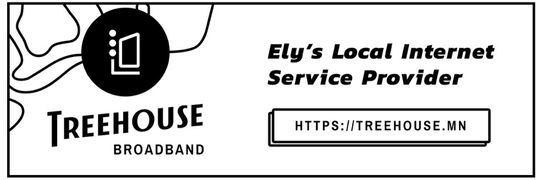by Tom Coombe
Cannabis-specific businesses could be severely limited, both in number and where they may be located in Ely, under provisions of an ordinance that had its first reading earlier this week.
On a 6-0 vote with Paul Kess absent, the council modified and then approved a draft ordinance, and scheduled a Dec. 4 public hearing at City Hall.
While current sales of “lower potency” products such as edibles and cannabis-infused drinks could continue as is, the ordinance establishes a new category for “cannabis retail businesses,” and establishes buffer zones that prohibit them within 500-to-1,000 feet of various entities including schools, day cares, residential treatment facilities, parks and other cannabis businesses.
Council member Adam Bisbee expressed reservations about the restrictions and noted that, according to his research, they would essentially limit cannabis businesses on Sheridan Street from Central Avenue to First Avenue West, and from 10th Avenue East to 13th Avenue East.
“Everything else would fall within the setback zones,” said Bisbee.
But Bisbee’s suggestion to explore reducing the scope of the buffer zones got strong pushback from mayor Heidi Omerza, indicating the buffer zones were about “protecting the community.”
“I know that’s not how everybody may feel but that’s how I feel,” said Omerza.
Earlier in the meeting, Omerza supported a change that increased the number of cannabis-specific businesses from one to five “as long as we keep the setbacks in there.”
Omerza also noted that there remains time for the council to alter what’s ultimately adopted, with opportunity for input at the public hearing before council members take final action.
Harold Langowski, the city’s clerk-treasurer and operations director, said Bisbee’s estimate about how the buffer zones would limit cannabis businesses “might be pretty accurate.”
The clerk’s office will also develop a map to get more specific data on the potential impact of buffer zones.
If the restrictions as proposed, including the buffer zones, were applied to alcohol sales, numerous downtown bars and restaurants would no longer be able to sell alcohol.
The discussion this week followed a council study session last month and amid continued wariness by some local government officials, about the regulation of cannabis cultivation and sales in the wake of state legislative action that legalizes recreational marijuana.
In July, the city enacted a temporary moratorium on the establishment of new commercial operations related to the sale, distribution and manufacturing of cannabis and THC products, but the city is required to have its own regulations in place by the end of the year.
Council members passed two ordinances Tuesday, one regulating cannabis businesses and the other related to the zoning of cannabis businesses.
The first ordinance further defines cannabis-related products and defines low potency products including those intended to be eaten or consumed, is not a drug, do not contain cannabinoid derived from plants or flowers, and is the type of product approved for sale by the Minnesota Office of Cannabis Management.
These products are those typically found at convenience stores or bars.
The ordinance sets up licensing provisions for these businesses and allows for a maximum of 10 of these businesses in the city limits.
It includes prohibitions typical to the sale of other products such as cigarettes or alcohol including a ban on self-service machines and a minimum age (21) requirement for purchase.
As currently proposed, sale of those products and operation of those businesses would not be subject to the proposed buffer zones.
More stringent regulations, however, are proposed for retail cannabis businesses, as well as any business that proposes to manufacture, test or cultivate cannabis.
The draft ordinance presented Tuesday first limited retail operations to just one, but council member Al Forsman said he preferred that the marketplace rather than the city determine the number of retailers, and he successfully pushed to raise the maximum to five.
“I feel one is way too restrictive,” said Forsman.
More contentious were the buffer zones that establish the prohibition of any cannabis business that were to set up shop within 1,000 feet of a school, or within 500 feet of a daycare, residential treatment facility, playgrounds, athletic fields or other cannabis businesses.
Langowski noted that the buffer zones would prohibit a cannabis manufacturer from opening in an area zoned “Industrial” near the city-owned softball fields on Ely’s eastern edge, because both Little League baseball and girls softball have used the city-owned softball complex.
The discussion about buffer zones, or setbacks, drew the most discussion, with Bisbee asking for more data and a map of how availability may open up with smaller buffer zone limits, and both Omerza and council member Angela Campbell opposed.
Langowski said the clerk’s office would have more information about the impact of the buffer zones when council members debate the issue next, and at the public hearing, set for 4:30 p.m. on Dec. 4.
.jpg)










